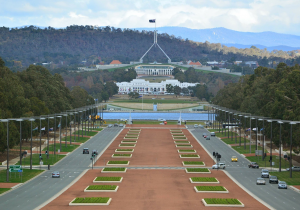
The recent controversy about the winning entry for the 2017 Olive Cotton Award is interesting in terms of the requirements of this photography portraiture prize, but also a helpful illustration of how copyright ownership can become complicated in the areas of commissions and collaboration.
Justine Varga entered a fascinating work, “Maternal Line”, which had been inspired by the sight of her grandmother seated at the kitchen table testing pens by scribbling.
She asked her grandmother to scribble directly onto a piece of film, and then handprinted the result in the darkroom. The result is a moving artwork described by the judges as “a very complex photographic portrait”.
There has been plenty of discussion about whether the result of Varga’s process was a portrait or a photograph.
However it also prompts discussion of some frequently misunderstood areas of copyright, as this article, quoting North Sullivan, former president of the Australian Commercial and Media Photographers association, and Professor Kimberlee Weatherall of the University of Sydney law school, highlights. Sullivan and Weatherall have both queried whether the copyright in the artwork is owned by Varga or her grandmother.
Collaboration
The general rule in relation to collaboration, where parties jointly create a copyright work, is that the authors own the copyright jointly.
In order to qualify as a joint author, a person must have contributed more than ideas or suggestions, because copyright applies to the expression in material form, not to the idea.
Dictation, though, is different from suggestion. The scribe who takes down dictation is not the copyright owner. This has the corollary that where one person has seen a copyright work and dictates it, copyright can be infringed even though the scribe has never seen the copyright work.
The question raised in this situation is whether Varga’s process involved a collaboration with her grandmother, or whether her grandmother was the sole author.
Importantly, joint authors cannot deal with their copyright without the consent of the other authors. Where two parties to a commercial transaction are jointly contributing to a copyright work, it’s worthwhile considering whether to agree that each party can commercialise the work without the other party’s permission, or whether they want to act jointly throughout the life of the copyright.
Commissions
The laws relating to copyright in commissions differ between jurisdictions, and it’s important to understand the Australian rules for local situations.
When you commission a copyright work – as, in this situation, Varga may have done by asking her grandmother to scribble on the film – you do not automatically own the copyright.
There are some exceptions.
Photos commissioned for private or domestic purposes, such as wedding photos or a family portrait, under a paid arrangement, are an exception to this general rule. However, it’s open to the photographer to retain copyright by agreement, so the person commissioning the photograph needs to check the photographer’s terms and conditions.
The situation is also different for copyright works commissioned by the Crown, or created in the course of employment.
In other situations – whether it’s marketing material, website content, a logo, or photographs for your business – you need a written assignment agreement from the author if you want to own the copyright. You should also consider appropriate treatment of moral rights.
There are also compromise options. If your key requirement is to be able to use the commissioned work freely, a broad licence from the author may be adequate for your situation.
If you would like us to review your terms and conditions in relation to copyright ownership and licensing, contact us.

 Here is a round-up of some key developments in 2016:
Here is a round-up of some key developments in 2016: